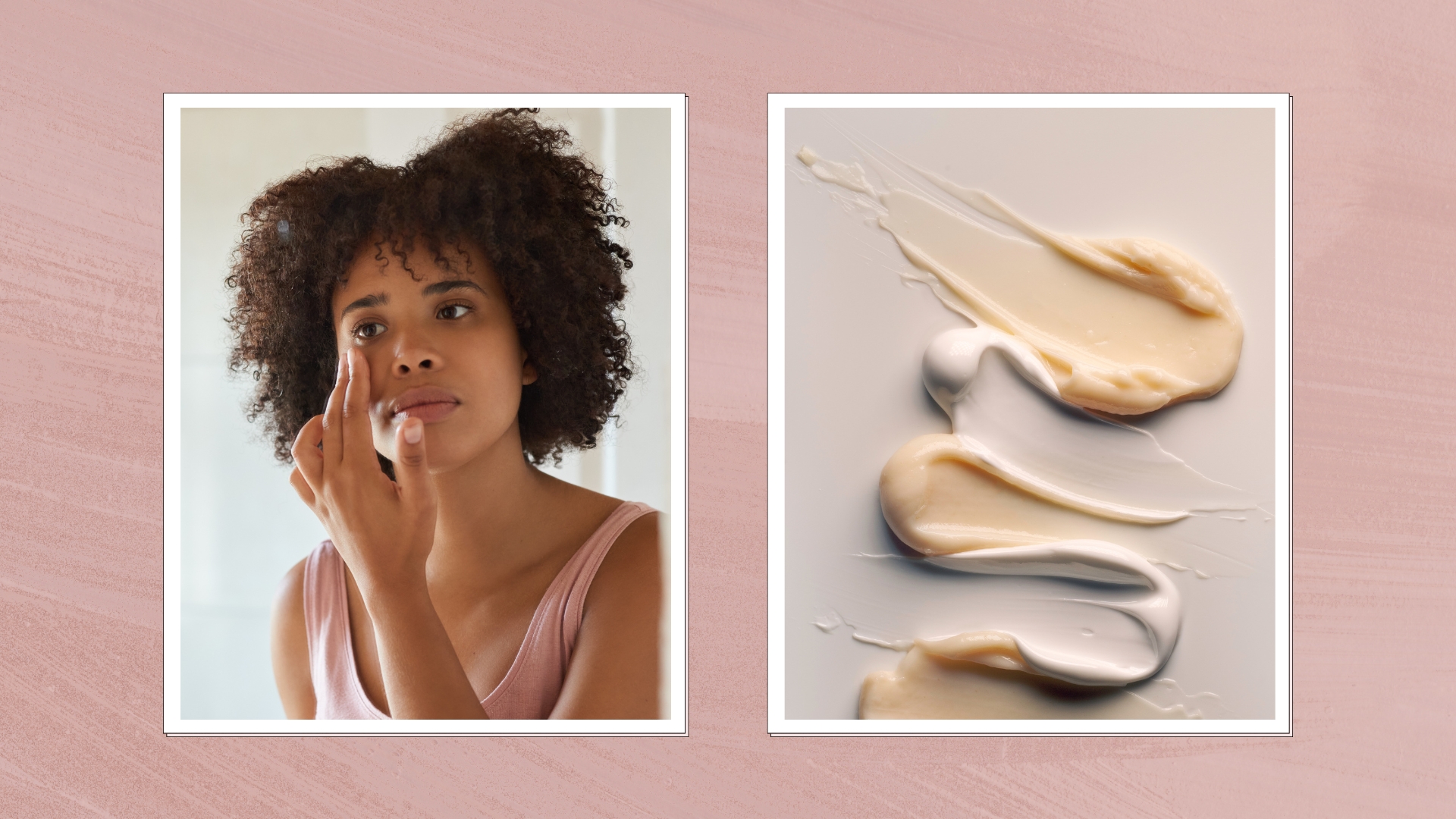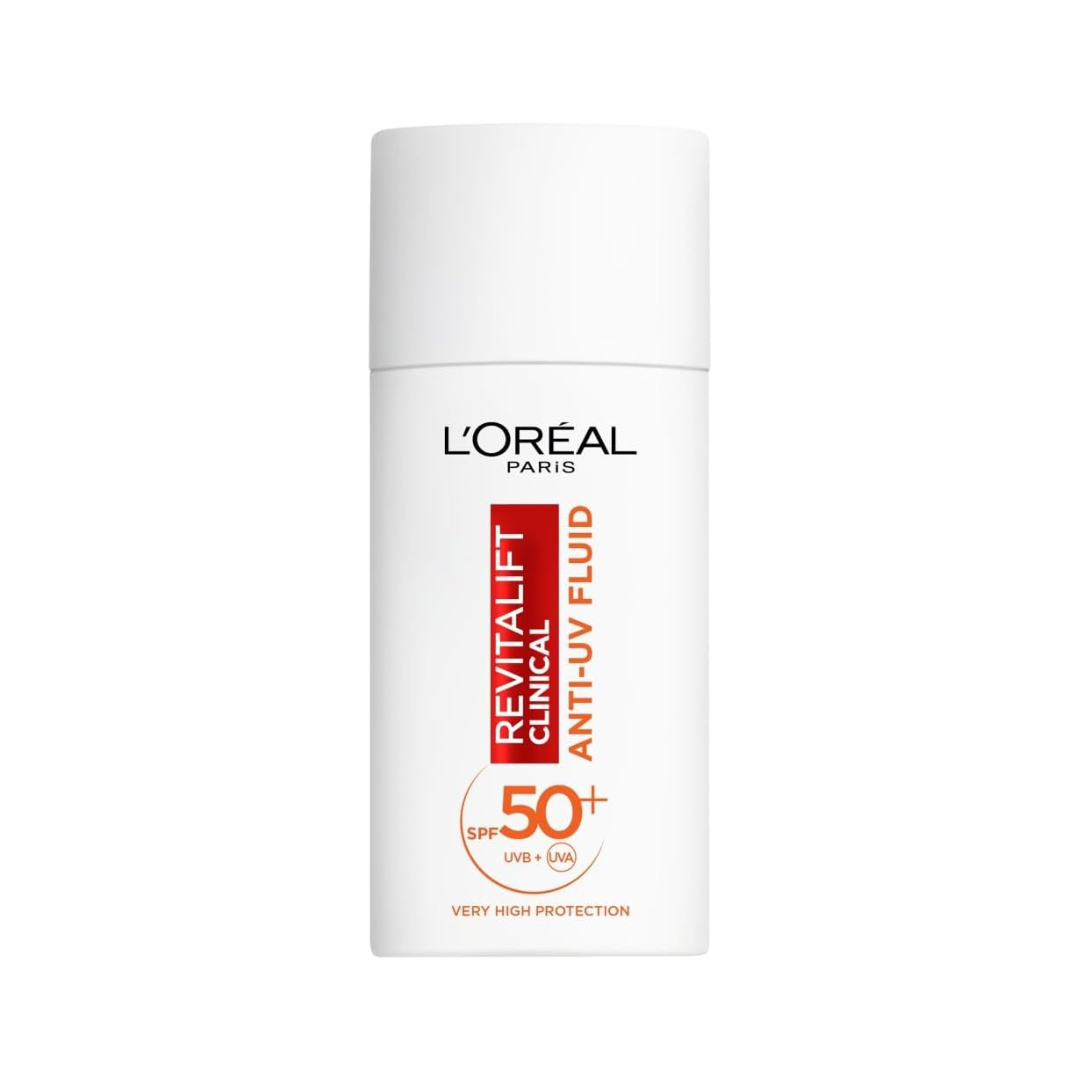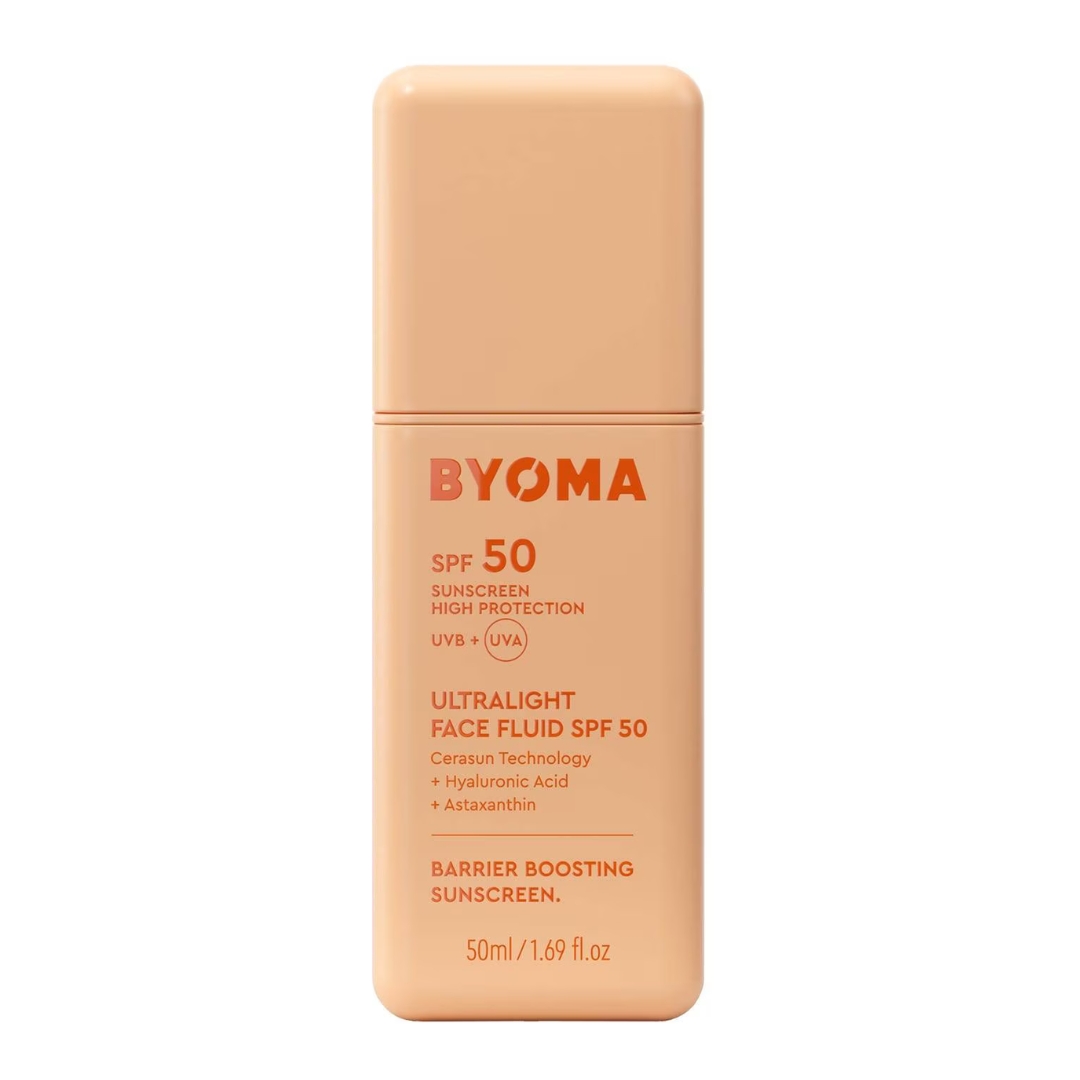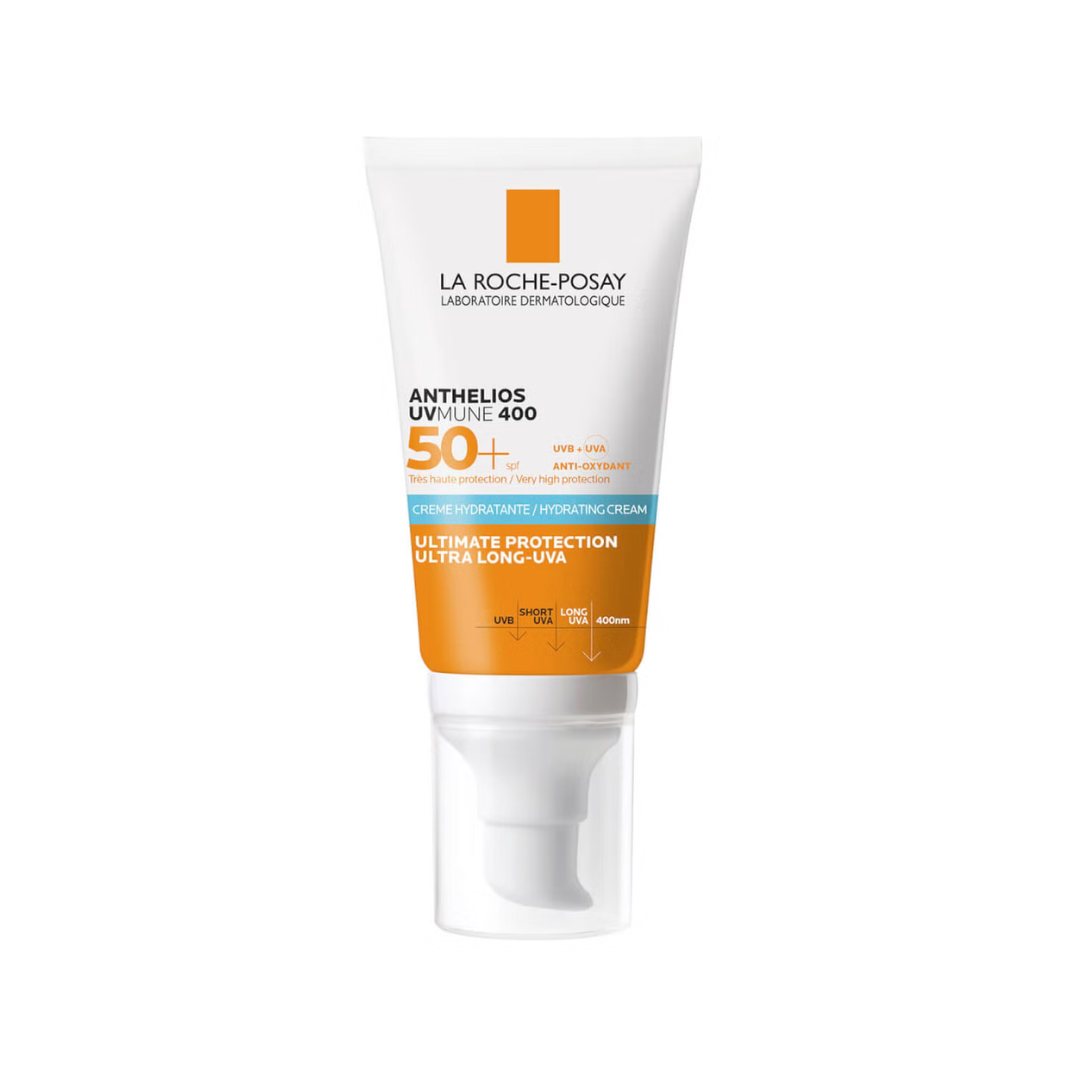Can you use sunscreen as moisturiser? Two dermatologists weigh in on streamlining your routine
Less is often more with skincare, so do you really need both sunscreen and moisturiser in your routine?

Naomi Jamieson

Sign up to our free daily email for the latest royal and entertainment news, interesting opinion, expert advice on styling and beauty trends, and no-nonsense guides to the health and wellness questions you want answered.
You are now subscribed
Your newsletter sign-up was successful
Want to add more newsletters?
When it comes to our skincare routines and the order with which we apply our products, the last two steps are likely the same: a moisturiser followed by an SPF. But with so many of the latter now boasting equally hydrating ingredients, can you use sunscreen as moisturiser instead?
The best face moisturisers and best facial sunscreens are rightfully seen as basic and essential steps of a solid skincare regime. But considering how both products tend to be the thickest formulas in one's arsenal, you've probably wondered, on more than one occasion, whether you could just skip moisturiser and go straight to your SPF. More so when summer strikes and the idea of slathering your face in layers upon layers of heavy and sticky creams becomes less and less appealing.
So, we spoke to two consultant dermatologists and asked them straight: "Can I use sunscreen as moisturiser?" Here's what they had to say...
Can I use sunscreen as moisturiser? Two derms share their expertise
It's a fair question, especially when many of the best sunscreens for sensitive skin, let's say, share ingredients in common with your favourite moisturisers - like glycerin, hyaluronic acid and vitamin E. Thankfully, the qualified skin experts have shared intel on whether retiring moisturiser in favour of SPF is advisable and what skin types, in particular, might actually benefit from doing so.
Can you skip moisturiser and apply sunscreen only?
A lot of online advice might have you believe that skipping moisturiser and only relying on sunscreen is "bad" or not advisable. But this isn't the case – both consultant derms we spoke to confirmed that doing is perfectly fine in certain cases (a good reminder that skincare is not a one-size-fits-all situation).
"It completely depends on individual skin type and the formulation of the sunscreen," says Dr. Anjali Mahto, consultant dermatologist and founder of Self London. "For individuals with oily or acne-prone skin, like myself, using a heavy moisturiser beneath sunscreen can contribute to increased oiliness and potential breakouts. In these cases, a lightweight, non-comedogenic sunscreen that includes hydrating ingredients such as hyaluronic acid, glycerin or ceramides can provide adequate moisture, effectively serving the dual purpose of hydration and sun protection."
Dr. Ellie Rashid, consultant dermatologist at OneWelbeck, agrees. "I do advise skipping moisturiser if someone has very oily skin," she tells us. "It depends on the formulation of the sunscreen; some are formulated with hydrating ingredients like hyaluronic acid, glycerin, niacinamide and ceramides, which can all add to the hydrating finish of a sunscreen."
Sign up to our free daily email for the latest royal and entertainment news, interesting opinion, expert advice on styling and beauty trends, and no-nonsense guides to the health and wellness questions you want answered.
Who should apply both moisturiser and sunscreen?
As mentioned, "It’s absolutely fine to skip moisturiser if using sunscreen and your skin feels hydrated," says Dr. Rashid, adding that it is also "completely fine" if your skin is naturally oily. However, "If you have very dry or sensitive skin, then you may still want to use a moisturiser."
Dr. Mahto explains that this is because many modern sunscreen formulas also provide sufficient hydration and can, therefore, eliminate the necessity for a moisturiser during the day in well-balanced to oily skin types. "However, for individuals with dry or sensitive skin, a dedicated moisturiser may still be necessary to ensure proper skin hydration throughout the day," she adds.
If you know your skin feels tight and uncomfortable a few hours into the day after applying sunscreen alone, you likely need to stick with the moisturiser. As the old saying goes, if it ain’t broke, don’t fix it. But regardless of your skin type, Dr. Rashid stresses that "Sunscreen remains the final step of any skincare routine." On that note, below we’ve shared a few of our favourite high-protection formulas, including both lightweight options that are some of the best sunscreens for oily skin and more nourishing options.
Our favourite daily and hydrating sunscreens
If you're keen two combine your hydration and sunscreen steps, we've rounded up three SPFs that feature nourishing, skin-loving ingredients - all of which are tried, tested and loved by our beauty team.

RRP: £20
Containing both glycerin and hyaluronic acid, plus vitamin C, this L'Oréal Paris formula also contains a vitamin C derivative to provide the skin with some antioxidant protection. It's easy to apply and comfortable to wear – plus, you can often bag a decent discount.

RRP: £14.99
The BYOMA Ultralight Face Fluid SPF50 Sunscreen is a favourite of Digital Beauty Writer, Sennen Prickett's who describes it as lightweight, hydrating and a great option to pair under makeup (as it doesn't cause concealer and foundation pilling). It delivers broad-spectrum protection but is also packed with ingredients like hyaluronic acid - to hydrate and boost your skin's barrier.
Lucy is a UK-based beauty journalist who has written for titles including Marie Claire, Glamour and OK!, as well as contributing to woman&home. Her work covers everything from expert skin and haircare advice to beauty trends and reviews of the latest products. During her career she regularly speaks to the industry's leading hairdressers, dermatologists and make-up artists, has covered backstage at London Fashion Week and interviewed many a celeb about their beauty routine.
- Naomi JamiesonBeauty Writer

